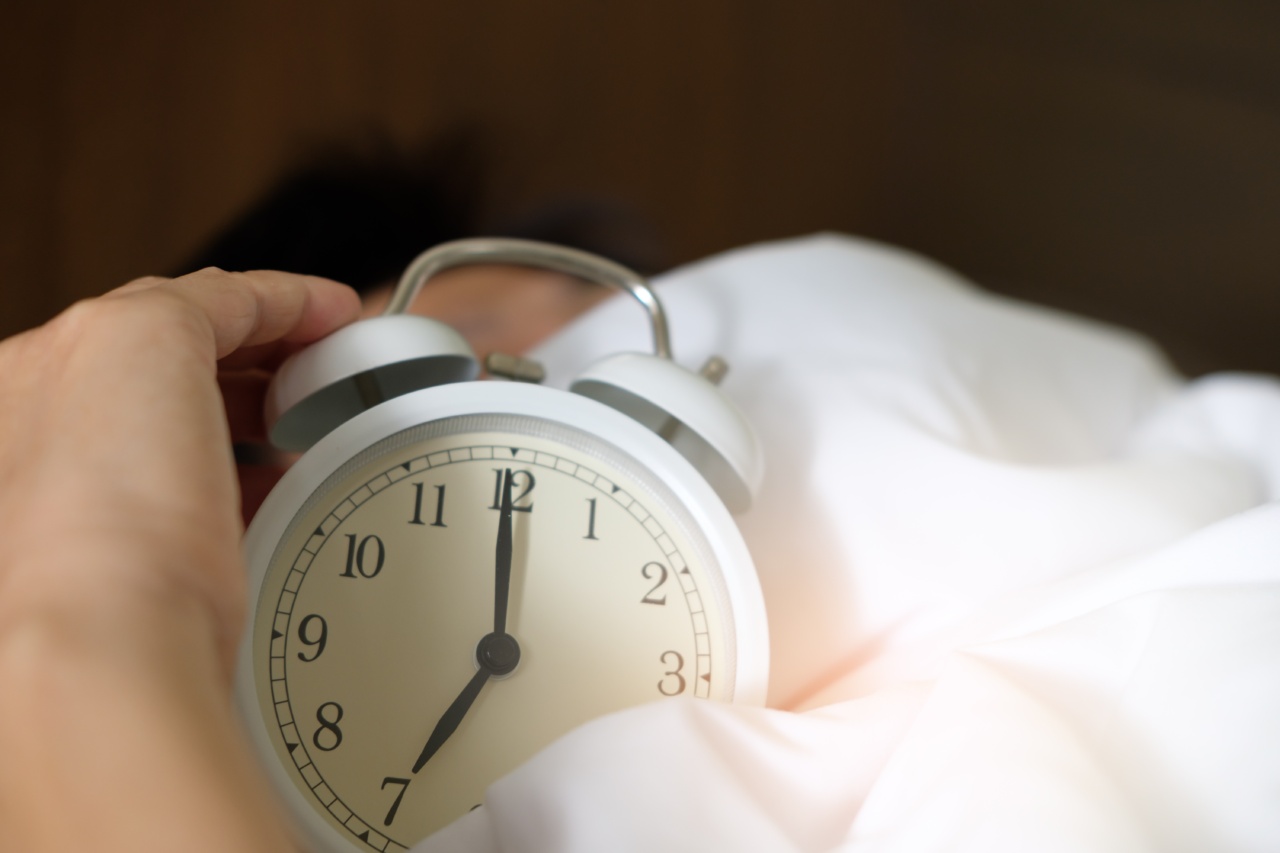Are you one of those people who find it hard to get a good night’s sleep? Do you often wake up feeling tired and groggy, wishing you could hit the snooze button and get a few more minutes of precious sleep? If so, you’re not alone.
Many individuals struggle with sleep issues, which can significantly impact their overall well-being and productivity. In this article, we will explore how hitting the snooze button can actually contribute to a better sleep experience.
The Importance of Quality Sleep
Before we delve into the benefits of snoozing, it’s essential to understand why quality sleep is crucial for our health. Sleep is a natural process that allows the body and mind to rest, recharge, and repair.
During sleep, our bodies work behind the scenes, repairing damaged tissues, consolidating memories, and regulating various bodily functions.
Studies have shown that individuals who get sufficient, uninterrupted sleep have a lower risk of developing chronic conditions such as obesity, diabetes, and cardiovascular diseases.
Additionally, sleep deprivation is linked to impaired cognitive functions, decreased productivity, and even mental health issues like depression and anxiety.
The Snooze Button Dilemma
While hitting the snooze button might seem like a simple solution to catch a few extra winks, it often leads to a vicious cycle of fragmented, inadequate sleep.
When we wake up to the sound of an alarm, our bodies undergo a series of physiological changes to bring us out of sleep and into wakefulness. These changes involve hormonal fluctuations, increased heart rate, and changes in brain activity.
By hitting the snooze button and drifting back to sleep, we disrupt these wake-up processes, preventing our bodies from transitioning smoothly from deep sleep to wakefulness.
As a result, we end up feeling groggy and even more tired than before, setting the tone for a sluggish day ahead.
The Benefits of Hitting Snooze
However, there are scenarios where hitting the snooze button can actually improve our sleep experience. Let’s explore a few instances where strategic snoozing can be beneficial:.
1. Allowing for a Gradual Awakening
When we wake up suddenly from a deep sleep, our bodies experience a shock to the system. This abrupt transition can leave us feeling disoriented and fatigued.
By hitting the snooze button and dozing off for a few more minutes, we allow our bodies to gradually awaken, easing the shock and allowing for a smoother transition from sleep to wakefulness.
2. Extending Morning Sleep
While it’s always recommended to get a consistent amount of sleep each night, there are instances where we may not have had enough rest.
Hitting snooze allows us to steal a few extra minutes of sleep in the morning, providing a temporary boost in energy levels and helping us feel more refreshed.
3. Breaking the Sleep Inertia
Sleep inertia refers to the period of grogginess and reduced cognitive performance that some individuals experience upon waking up.
By hitting snooze and going back to sleep, we can potentially break this sleep inertia by facilitating a restart of our sleep-wake cycle. However, it’s important not to abuse this approach, as it may lead to more harm than good.
4. Managing Stress and Anxiety
For individuals dealing with high levels of stress or anxiety, hitting the snooze button can offer a brief respite from the worries and pressures of daily life.
These few extra minutes of sleep can help relax the mind and reduce tension, allowing for a better-quality overall sleep experience.
Tips for a Healthy Snoozing Routine
While hitting snooze can be beneficial in certain situations, it’s crucial to establish a healthy snoozing routine to maximize its advantages. Here are a few tips to help you incorporate snoozing into your sleep routine:.
1. Set a Consistent Wake-Up Time
Try to wake up at the same time every day, even on weekends or days off. This helps regulate your body’s internal clock and promotes better sleep quality. By setting a consistent wake-up time, you can plan your snoozes accordingly.
2. Limit Snooze Time
It’s important to avoid falling into the trap of repeatedly hitting the snooze button and prolonging your morning sleep. Aim for a maximum snooze time of 10 minutes to prevent disrupting your sleep-wake cycle further.
3. Use Gentle Alarm Tones
Opt for soothing alarm tones that gradually increase in volume to wake you up gradually. Harsh and abrupt alarm sounds can trigger stress responses, leading to a groggy start to your day.
4. Create a Relaxing Bedtime Routine
Establish a calming routine before bed to signal to your body that it’s time to wind down. This can include activities such as reading, taking a warm bath, or practicing relaxation techniques like meditation or deep breathing exercises.
5. Evaluate Your Sleep Environment
Ensure that your bedroom is conducive to quality sleep. Keep it dark, quiet, and at a comfortable temperature. Consider investing in a comfortable mattress, pillows, and breathable bedding materials to enhance your sleep experience.
The Bottom Line
While hitting the snooze button may have earned a bad reputation among sleep experts, it can still be a useful tool if used mindfully and in moderation.
By incorporating strategic snoozing into your sleep routine, you can potentially experience a more restful sleep and wake up feeling refreshed and energized.






























